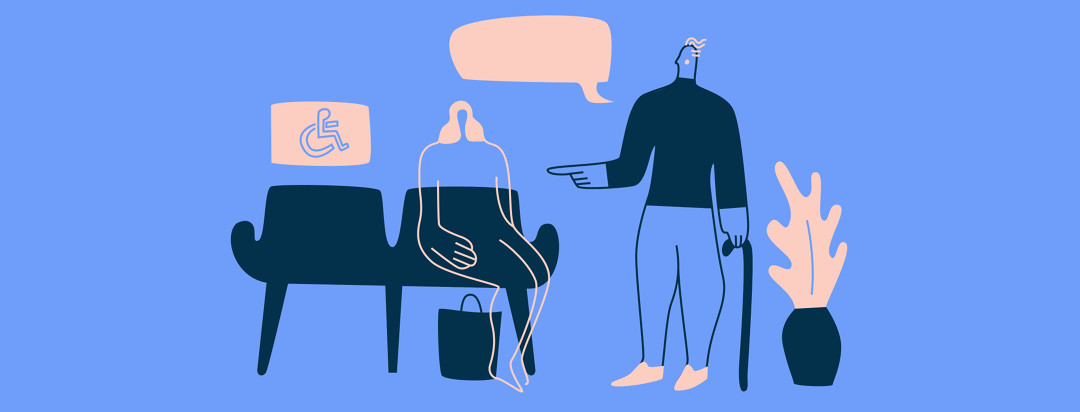The Unique Challenges of PsA in Young Adults
“You’re young, why are you sitting down?” Those are the words 30-year-old Aimee Prez says she often hears from people who don’t know she is living with psoriatic arthritis (PsA).
PsA is an autoimmune disease and a form of arthritis which affects people living with psoriasis, a condition of the skin which causes inflamed patches of dry skin.
The stigma of being a young person with PsA
Typically, stiff joints and pain are associated with older people, however Aimee recalls first encountering slight pains in her body as a teenager, “I would say that the joint pain that I was experiencing within my ankles, but it wasn't something that was super debilitating.”
By the time Aimee reached her 20’s her pain became further excruciating and could no longer be ignored, “Psoriasis exploded all over my body and that's when the more consistent joint pain started.” At just 21 years old, Aimee began to feel pain in her hands, ankles, and back, now 10 years later the pain continues to increase, “Now it's kind of blossomed into other parts of my body that are pretty debilitating.
” There are lots of misconceptions and stigmas which accompany a young person with an invisible disease such as arthritis. Aimee shares the hardships of being a young adult with a part of the disease others can’t see.
Invisible symptoms
“The invisible symptoms get ignored or dismissed,” shares Aimee. The inflamed patches of psoriasis are loud and eye-catching, it typically gains the attention from those around.
However, arthritis is inconspicuous and only felt by the person living with it. Aimee recalls how those around her empathize with the spots on her skin, but oftentimes forget about the unseen challenges of the disease.
Joint pain
Aimee shares the frustration of her joint pain not being taken seriously by doctors, which could be attributed to her young age.
"Sometimes doctors will say maybe it's just stress. Here's a muscle relaxer or here's 800 milligrams of Ibuprofen as opposed to let's try and see if this has something to do with your disease. I almost feel like people are insinuating that I'm like, it's in my head or something.”
Social life
A PsA flare is unpredictable so it makes it hard to make concrete plans, which has significantly changed Aimee’s social life. “I don't like to make plans.
For instance, if me and my friends are together and we're like, oh yeah, let's go hiking Saturday,… In the past I would say let's do it, but now I’m like, God I hope I'm going to be able to do that…” Explains Aimee.
Take a break
When on family outings, Aimee shares her fears of slowing down her family when she needs to take breaks due to joint pain, which causes her to avoid sharing her aches with others,
“I tend to not say, ‘hey I'm in pain right now,’ because I don't want to be a downer. I don’t want to get to the point where I take away from the moment.” Aimee states she won’t say anything unless the pain becomes unbearable.
Impact on career
Working while living with PsA can be challenging due to the pain and fatigue which are connected to the disease. Aimee shares the hardships of managing her disease and making the decision to reveal it to co-workers.
There were times Aimee need additional breaks due to challenges with her PsA. She describes the fear of being stigmatized and misjudged at work, “I felt like I was just going to be seen as someone that wasn't carrying her weight.”
Community Poll
When it comes to living with multiple health conditions, I've found my:

Join the conversation